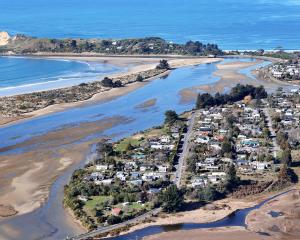
Islamic studies professor Halim Rane, of Griffith University, Australia, was in the city yesterday ahead of the Dunedin Abrahamic Interfaith Group and Otago Tertiary Chaplaincy’s 22nd Annual Peace Lecture next week.
He will be speaking on the topic of co-existence between the Abrahamic faiths — Judaism, Christianity and Islam — and co-existence also from the perspectives of international peace and security.
There had been "absolutely devastating scenes" coming from out of Gaza, Prof Rane said.
"As terrible as it is to see starving children and destroyed homes and hospitals and places of worship, the fact that the world has seemingly been so paralysed to do nothing about it, and Israel has been able to do this with impunity, I think should be deeply concerning to everybody around the world."
His work involved "covenants" — formal religious agreements both between different communities and with the divine — from the perspective of Islamic history and civilisation.
Many different religions had traditions of covenant, and they were fundamentally about ensuring everyone had the right to live their lives securely and peacefully without threat from somebody else, he said.
The war in Gaza was a case study of covenant violation.
"I don't think that what has been going on in Gaza, that this level of death and destruction would be possible without substantially high levels of Islamophobia."
Western media often framed Islam within contexts of violence, conflict and terrorism.
But research on covenants showed the tradition of Islam was one of respecting people to make their own choices about the faith, or lack of faith, they followed.
"Addressing some of the roots of that Islamophobia is very important for us to be able to see Palestinians as fellow human beings and then stand up for their right to exist."
In a world where international institutions of law and justice were being "eroded and disregarded", people needed to come together and "reclaim our humanity" and a sense of justice.
And this was "in much closer reach than we perhaps think", Prof Rane said.
"This is the first live-streamed genocide.
"People are very aware of what's happening and now people are speaking out against it."
The lecture is scheduled for Monday, from 6.15pm to 7.45pm, at the University of Otago’s St David Complex Lecture Theatre.











